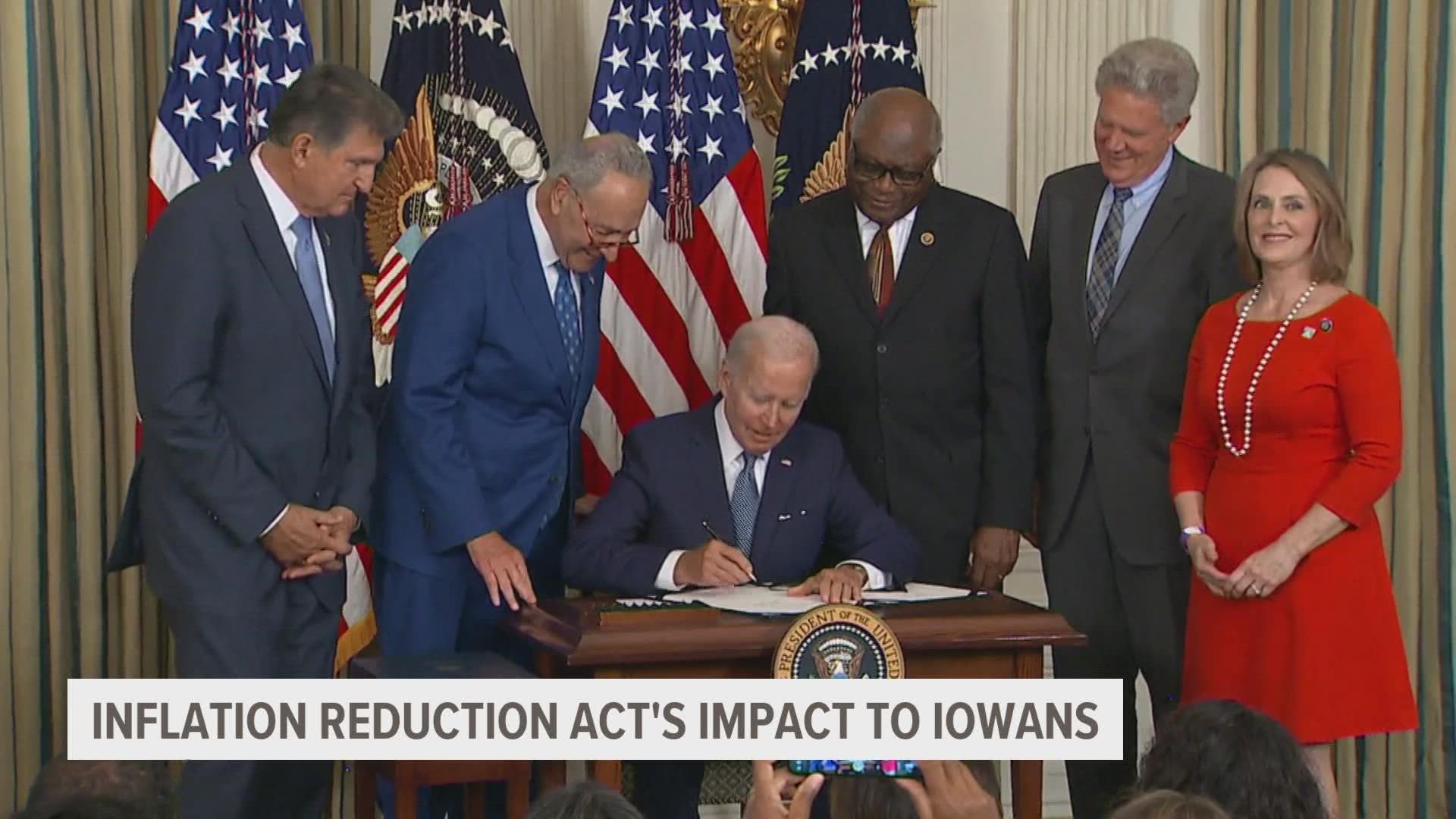DES MOINES, Iowa — President Joe Biden signed the Inflation Reduction Act Aug. 16. The massive piece of legislation aims to fight climate change, lower healthcare costs and raise taxes on major corporations.
But even though it tackles so much, one expert says there's time until consumers feel any effects.
"There's a lot in this bill, but not much of it is targeted directly at consumers," said Matthew Mitchell, an associate professor of international business and strategy at Drake University. "That spending from the U.S. government is going to take time to have an impact. We're not going to see an immediate impact right away."
Mitchell adds there is some funding in the plan that's earmarked for rural development, which he believes could eventually be a plus for Iowans.
"There is potentially a play that it could reduce the price of soybeans and corn, which would reduce sort of the input costs for a lot of the goods that we consume, and that would, you know, go towards reducing inflation, but we're just not going to see that right away," he said.
So what does Mitchell believe will combat inflation at a faster pace?
"I think the Fed has taken some really good actions recently to move in that right direction," said Mitchell. "But they were behind the ball, they got caught in some ways unaware. We would like inflation to be addressed by the Fed, not by the legislature."
While interest rates have risen, Mitchell says it will take time to trickle down to every day consumers. He also notes there have been some indicators of inflation slightly easing, whether that's in gas or airfare prices.
While it may take some time, Mitchell says that doesn't mean the Inflation Reduction Act won't have an impact on the prices you pay.
"Just like anything else with Washington, we just have to wait and see how the impact of this bill trickles down to the average citizen, the average Iowan," he said.

